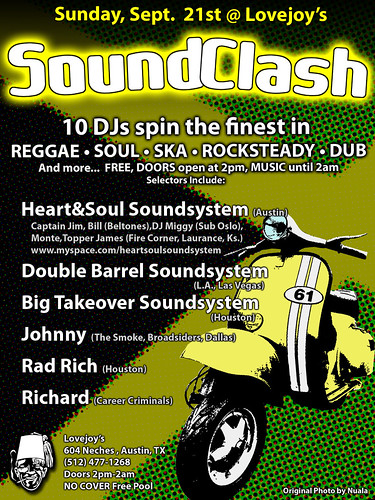The Del.icio.us user copeseticsoundsystem has some top quality reggae links... Which led me to the coolest site of the night, a collection of Jamaican record label art! It's loaded with scans of 45 labels, and has a darn fine mission:
"We don't intend the site to be an exhaustive discography of single releases, there are plenty of those to be bought from the bookseller or found for free on the Net. Instead we both thought it was about time for an online version of a coffee table book; glossy and thin on information but thick on indulgence.
In short pure eye candy, nothing more. There are enough weighty tomes available to the serious collector, so go make yourself a long cool cocktail and treat yourself to some pure pleasure."
Fantastic!
